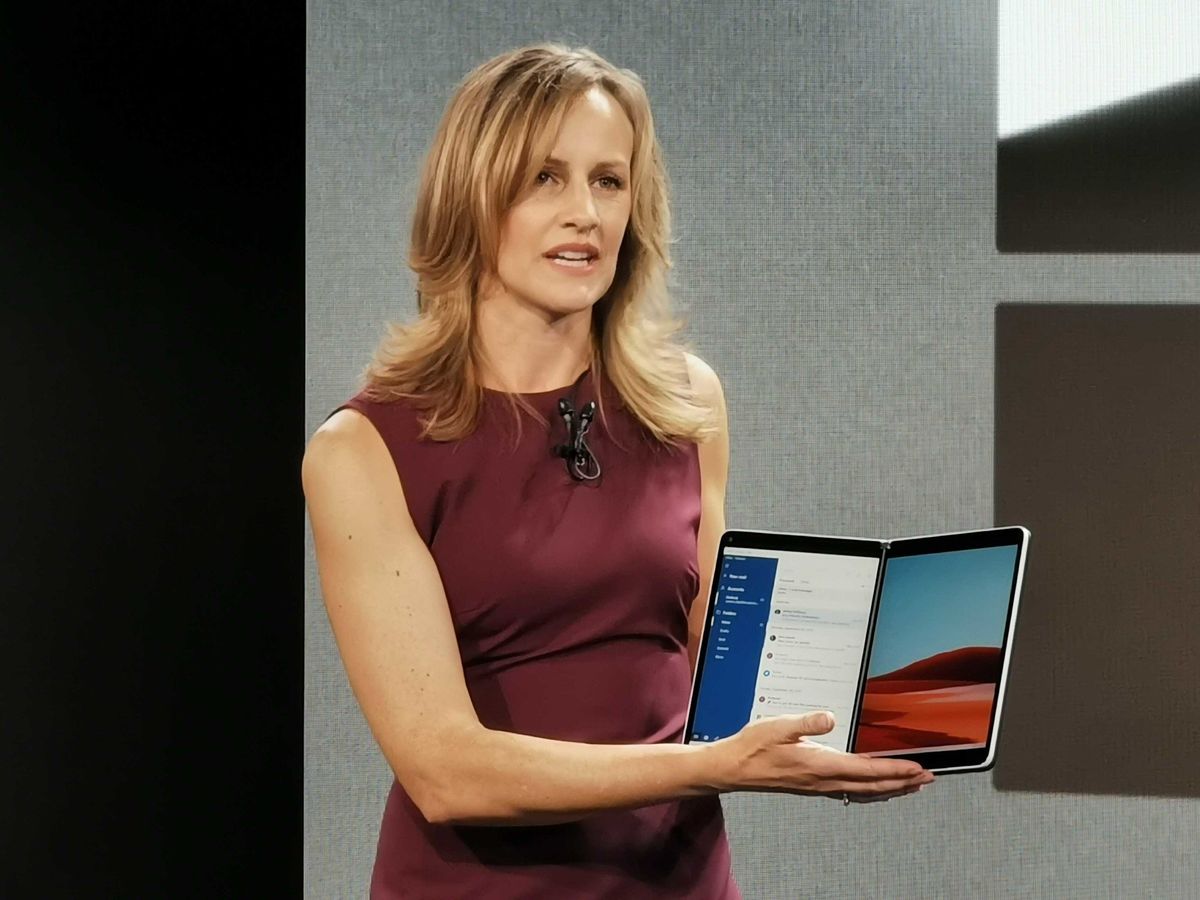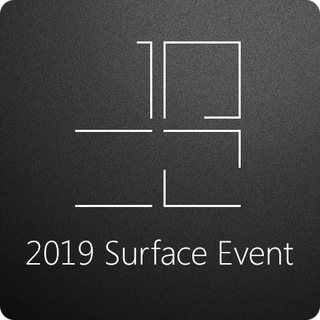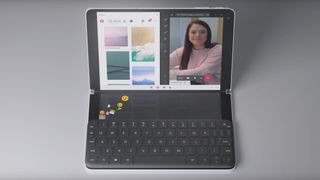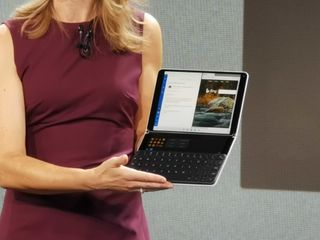It's the Surface Neo, not Duo, that should be more exciting for Windows Phone fans
At the big Microsoft Surface event on October 2, Redmond unveiled two folding tablets with two very different identities. For Windows Phone fans, it's the "non-phone" Neo that could prove to be the chosen one.


I can already hear the wider tech press groaning at this title. I HEAR YOU, tech press, and guess what, I don't care.
I gave up my Lumia 950 XL, moved onto Android, begrudgingly, when Twitter UWP became a crash-fest. Deep down, though, I always believed. One day, Windows on phones would rise again like a phoenix from the ashes, to reclaim its place as the greatest mobile OS above all. And it would be glorious.
Okay, that's a bit dramatic, maybe, but hear me out. It's pretty apt that the Windows 10X-powered folding tablet is called "Neo." While most are probably fawning over the Android-powered Surface phone-like "Duo," it's Matrix-monikered Neo that could prove itself to be the one for Windows Phone fans. And here's why.
Windows 10X is the path of Neo
Neo, previously known to us by its codename, Centaurus, is Microsoft's upcoming dual-screen folding tablet, powered by an all-new Windows 10X operating system. This new OS experience is based on Windows 10 itself, complete with Win32 programs that PC users know and love. It will additionally come with a different type of user experience, designed first for touch and dual-screen experiences.
Duo conversely is powered by raw Android, complete with Google Play support. It's not Android on top of Windows, as some have speculated/hoped, it is just literally Android, complete with the same developer environment, and Google's ultimate control. It will bridge between Windows-like no other phone in existence, thanks to Microsoft tools like Your Phone and OneDrive. However, like Samsung and Huawei have noticed over the years, Google ultimately has final control over the environment. Regulatory pressures thankfully will stop Google interfering in Microsoft's efforts too much. However, even with Your Phone and other cloud-based Android-to-Windows experiences, it's still never going to feel as integrated as a full Windows OS.

That's where Windows 10X comes in. This lighter version of Windows still has the power to run Win32 PC apps, but it also comes with a touch-optimized experience for mobile-like devices. In this incarnation, Windows 10X powers the Neo tablet, and presumably other OEM tablets that will likely make themselves known at a later date. A lot of the apps Microsoft demonstrated during its showcase were explicitly built for this platform, however, using the full suite of UWP APIs that are ARM-friendly. And thus, phone friendly.
With Windows 10X, I'm starting to believe

If Windows 10X truly takes off with developers, it could finally be the catalyst Microsoft needs to get app developers interested in building touch-optimized experiences that are fully compliant with a mobile use-case on Windows.
Get the Windows Central Newsletter
All the latest news, reviews, and guides for Windows and Xbox diehards.
As of right now, Windows 10's tablet mode is in a sad, sorry state. And perhaps, now we know why. Instead of trying to beef up Windows 10's tablet mode, they've simply been spending their resources on 10X instead. The lack of touch-optimization in Windows 10 led to a lack of interest in tablet-optimized apps and services for Windows 10 devices, which in turn, has led to a fairly anemic market for pure Windows 10 tablets. Generally, any Windows 10 device with a touch screen is a 2-in-1, since you'll want to run away screaming from tablet mode as soon as you're finished with the task at hand.
10X will hopefully change all of that. We won't know for sure until it ships in its final form in 2020, but if it's anything like what was demonstrated on stage at the Surface event, it looks like a big step up above what we have now.

Inspiring consumers to buy will hopefully kick off more interest from developers and companies whose apps arbitrarily sidestep Windows. You don't have to look far to find examples of staple apps that are painfully absent on Windows, that flourish on iOS and Android's more touch-friendly platforms. Instagram on Windows hasn't been updated in 5 billion years (disclaimer: possible exaggeration), and we've seen more significant companies leave Windows than arrive. The lack of a mobile endpoint is, in my opinion, to blame for all of that. 10X won't be a silver bullet, but it's a crucial step forward.
As Windows 10X grows, it could also shrink

Therein lies the obvious endgame. If Microsoft and its OEM PC partners can make Windows 10X a success where RT, Windows 10 Mobile, and other touch-oriented efforts have failed, there's no reason to envisage a world where Neo could shrink down, and fit into your pocket.
All the APIs for telephony and LTE are there already. It just needs those damn apps. Win32 is a huge boon, but so much of the modern consumer computing and entertainment experience lives elsewhere.
There's a world where both the Android-powered Duo phone and Windows-powered Neo can perfectly co-exist, too, of course. Many people may just prefer Android, even if Microsoft manages to entice significant apps and services over to Windows. As long as you're using Microsoft services, Redmond is ultimately happy.
If you're a fan of the concept of Windows on phones, however, Neo is the path back to that reality. Will it happen, though? If 10X takes off, I'd say it is inevitable.
Related: Everything Microsoft announced at its Surface event

Jez Corden is the Executive Editor at Windows Central, focusing primarily on all things Xbox and gaming. Jez is known for breaking exclusive news and analysis as relates to the Microsoft ecosystem while being powered by tea. Follow on Twitter (X) and Threads, and listen to his XB2 Podcast, all about, you guessed it, Xbox!